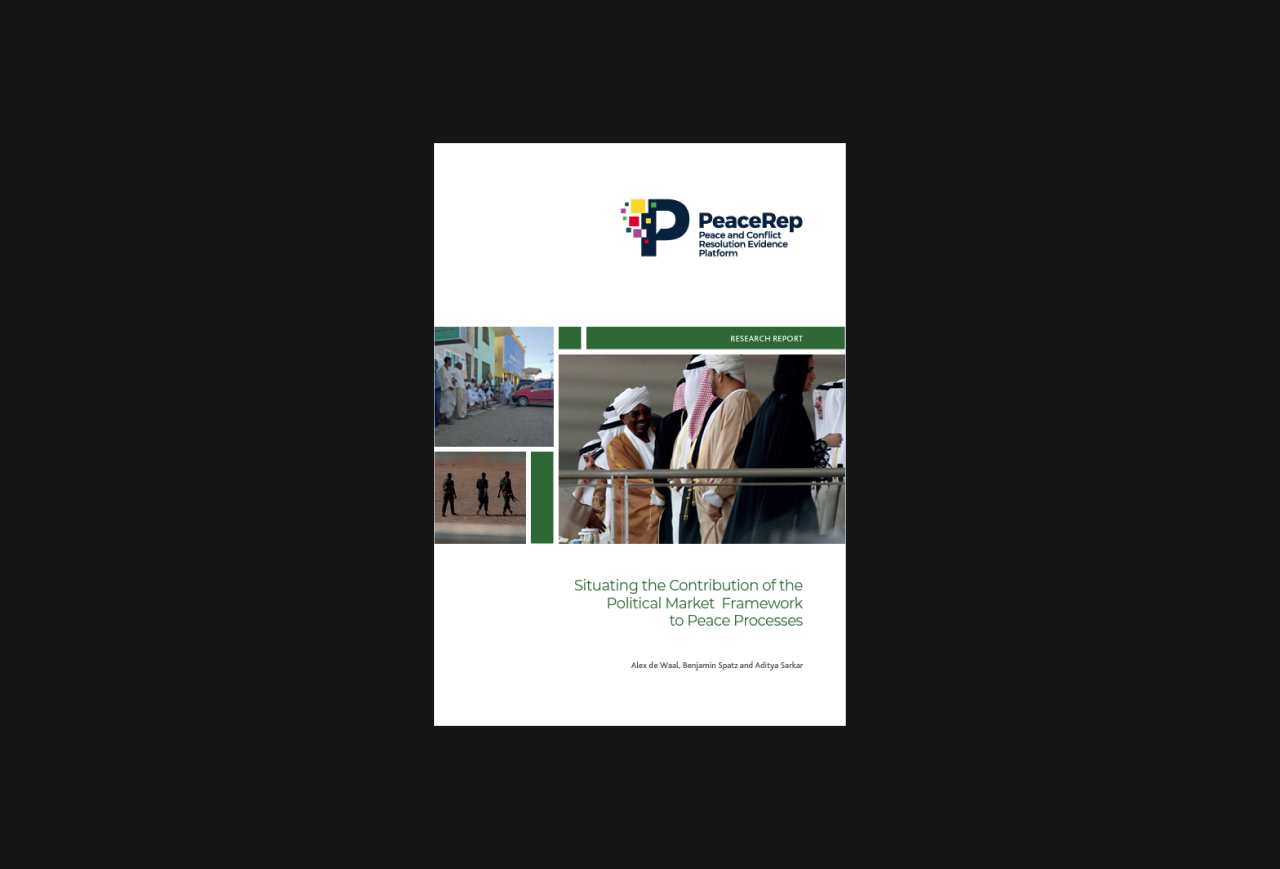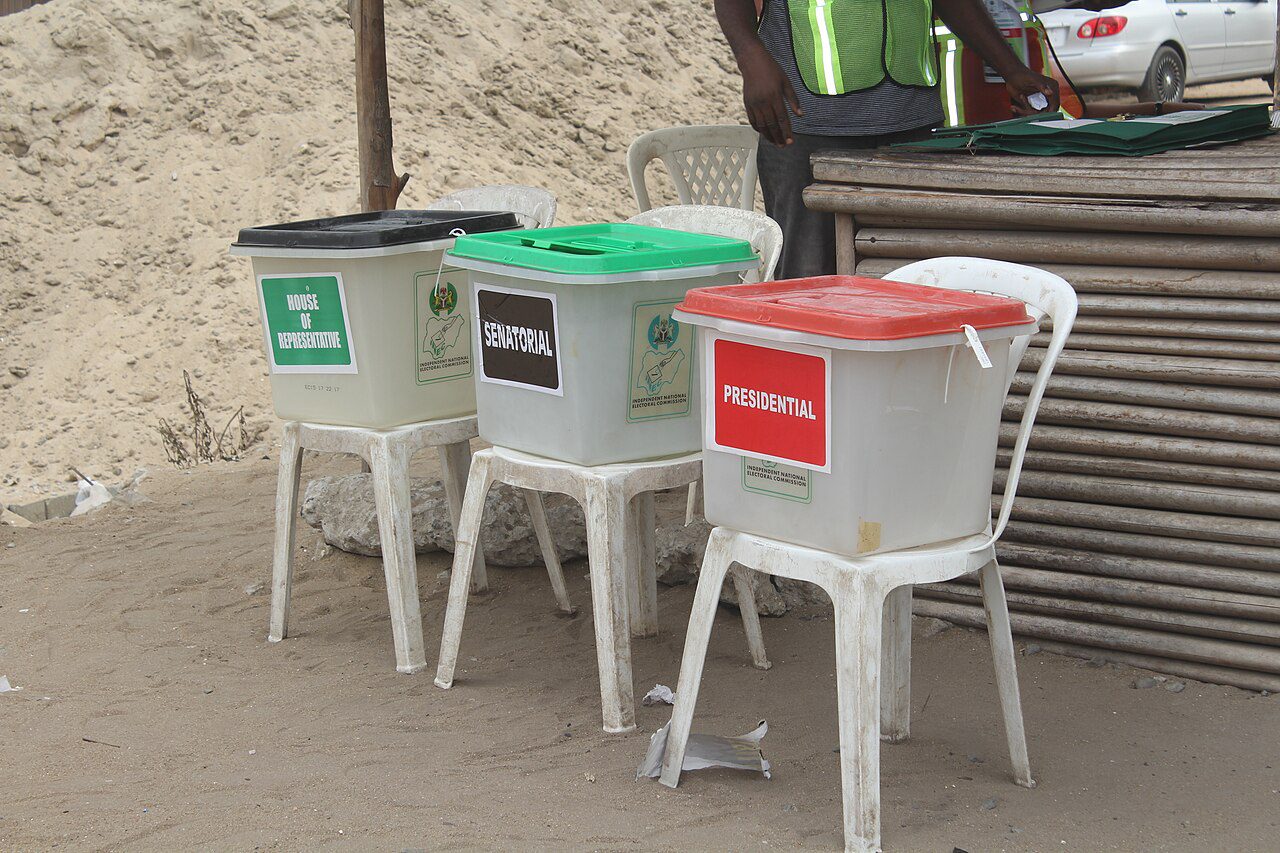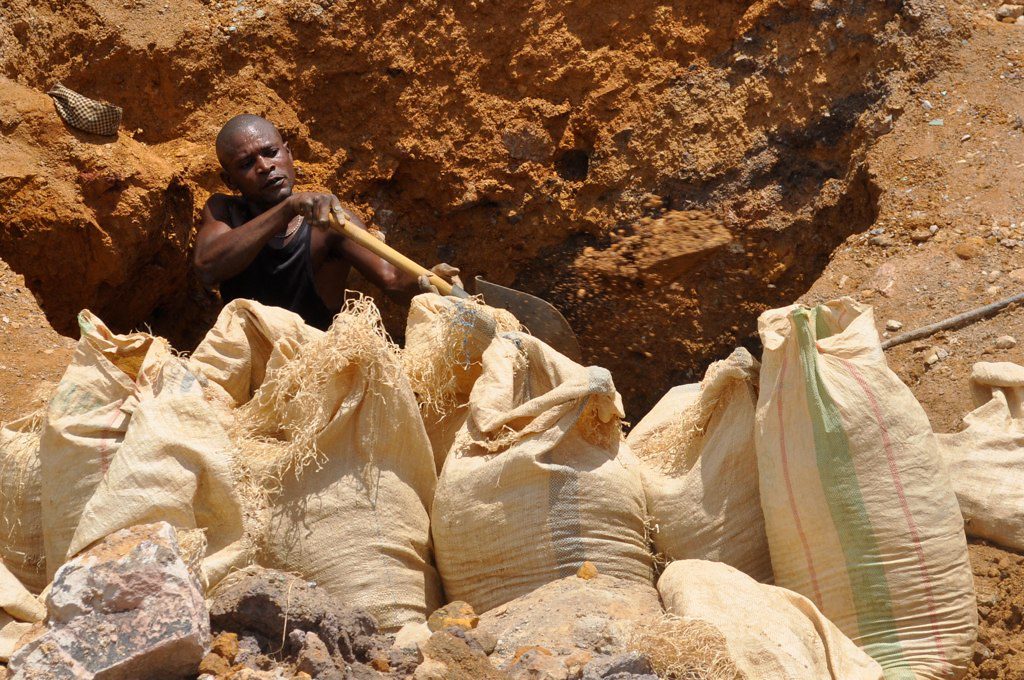Many of the world’s conflicts are in places where institutions have failed and violent transactional politics rules. Often, the battlefield is only the tactical arena—what counts strategically is the material resources on which the belligerents can call. Among those material resources, what matters most are political funds—the money that can be used to buy political loyalties and favors, no questions asked.
The paper, ‘Situating the Contribution of the Political Market Framework to Peace Processes,’ by Alex de Waal, Ben Spatz and Aditya Sarkar brings the political marketplace framework (PMF) to bear on mediation practices. It develops a toolkit that can serve as a straightforward diagnostic for the mediator to analyze the conflict in question, and what’s needed to resolve it.
Political marketplaces are places where transactional politics trumps institutions, and where the monetary component of those transactions is so deeply embedded that the prices of political loyalties and services follow the laws of supply and demand. They are found in many fragile and conflict-affected countries in Africa and the Greater Middle East. Examples are Afghanistan, Democratic Republic of the Congo, Iraq, Nigeria, Somalia, Sudan, and Yemen.
In starting out to apply the toolkit, the would-be mediator should ask four questions.
One: how is the political marketplace organized?
Some political markets are deregulated, with low barriers to entry. In such cases there are likely to be multiple conflict actors, constantly shifting, highly responsive to external conditions such as flows of political money. Such markets are likely to see ‘Hobbesian’ conflicts, in which there is a low intensity, unpredictable conflict of all against all. Some are oligopolistic, and in those cases, collusion among the contending elites can readily switch into outright rivalry. Conflict prevention may mean spotting the issues on which the oligopolists may fall out, and the sparks that will turn their rivalry into armed conflict. A monopolistic political marketplace is likely to be stable—but will be prone to conflict over the leader’s succession, or if the monopolist’s source of political funds is in peril.
A peace agreement may change a deregulated market to an oligopolistic one, or a rivalrous oligopoly to a collusive one. But the issues over which the former rivals decide to collude—especially the allocation of material rewards or the control over organized violence—will likely contain within them the seeds of the next conflict.
Two: is it a political bull or bear market?
This is key. A political bull market is one in which political funds are expanding (to be specific, available political money is increasing more than the price of loyalty is increasing), so that material rewards can be distributed more liberally.
Most formulae for peacemaking in fragile countries are premised on dividing up slices of a bigger cake. An agreement is likely to be a ‘payroll peace’, a ‘rationbook peace’ or a ‘rent allocation peace’. This is not the same as a peace dividend—which is a general uplift in the wellbeing of the affected people. Rather it focuses on the payout to the belligerents themselves, and especially the leaders.
A political bear market is the reverse. Where political funds are shrinking, an agreement will be a zero-sum exercise. They will have to make peace for its own sake. Given that the leaders of the warring parties are more likely to want to continue practicing their political business skills than converting to true believers in peace, such a peace deal will need to be very carefully crafted to reward both enough. Alternatively, the parties to the agreement can agree on the basis that they will then squeeze out third parties—essentially making a security pact to turn on others.
Three: is the conflict ‘Schmittian’, ‘Hobbesian’ or is it shifting?
A ‘Schmittian’ conflict consists of two well-organized sides (usually coalitions), in which it is easy to identify friend and foe, fighting over state power. A ‘Hobbesian’ conflict has multiple actors, shifting coalitions, fragmentation of formerly cohesive actors, and new actors entering. It may be less intensely violent, but it is likely to be more widely spread and more difficult to control.
Quite often a ‘Schmittian’ conflict morphs into a ‘Hobbesian’ one because the conflict parties cannot sustain high-intensity combat and cannot pay enough to keep their clients in line. A conflict mediation that begins in the earlier, ‘Schmittian’ stage of a conflict may find that it is no longer well-suited when the situation shifts to a ‘Hobbesian’ conflict. Proactive mediation needs to anticipate this shift.
Four, what forms of violence will continue after the conflict parties sign an agreement?
The rules of the political marketplace game are sticky. Whatever the rhetoric of a peace agreement, transactional politics will remain. A peace agreement isn’t likely to enable an escape from the logic of monetized, violent transactional politics. It may increase corruption. It may be a tactical alliance against others. Rather than decreasing violence, it may just change its nature. The ongoing violence may be labelled holdout by spoilers, resistance to disarmament, or banditry or terrorism—i.e., violence that doesn’t count politically.
Posing these questions—and others—will help the mediator grappling with conflict dynamics in a political marketplace. It may not make peacemaking easier. But it should help with a more realistic appraisal of what is possible given the tools available.



